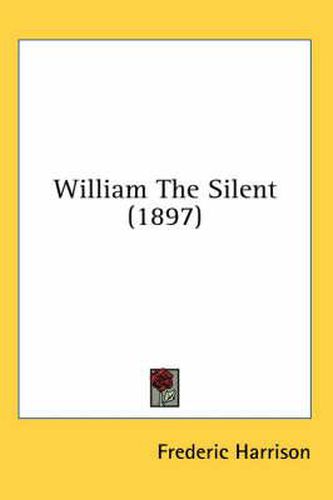Readings Newsletter
Become a Readings Member to make your shopping experience even easier.
Sign in or sign up for free!
You’re not far away from qualifying for FREE standard shipping within Australia
You’ve qualified for FREE standard shipping within Australia
The cart is loading…






Purchase of this book includes free trial access to www.million-books.com where you can read more than a million books for free. This is an OCR edition with typos. Excerpt from book: CHAPTER III THE PROTESTANT REVOLUTION 1564-1567 We now enter on the crucial struggle, with religion at its centre, which absorbed the last twenty years of the Prince’s life, and in the end closed it by the assassin’s bullet. Philip, the Spanish troops, the Consulta, the Cardinal, had all in turn withdrawn in face of the growing force of the Reformation, and the widespread indignation they each aroused. They had withdrawn? but only to gain time, and for a far more deadly spring. Silently, in the recesses of Spain, Philip was organising a more crushing persecution, a far stronger alien army, and martial law under the ruthless Alva. It must be remembered that in 1564 Protestantism itself was only in its first generation, everywhere in a state of flux and of rudiment. All persons well past middle life had been baptized and bred up as Catholics. The Council of Trent had only just formulated its final doctrines; the Church of England was still in the making; in the Netherlands, in England, in most parts of Germany, the Protestants were still in a minority, and themselves divided into hostile sects. In France,Protestantism had become to a great extent a struggle between political parties. And, almost everywhere in Europe, those who were charged with the duty of government (except the Spanish and Papal fanatics) regarded the various types of Protestantism from the political, not from the spiritual, aspect. This was preeminently true of William of Orange, who?even more than Elizabeth of England, and quite as much as Henry of Navarre?placed peace, order, and religious compromise above any question of Bible, doctrine, or worship. Pontus Payen, a sincere Catholic, loyalist, and admirer of the Cardinal, has thus painted the religion of the Prince, with a pen hostile, indeed, but n…
$9.00 standard shipping within Australia
FREE standard shipping within Australia for orders over $100.00
Express & International shipping calculated at checkout
Purchase of this book includes free trial access to www.million-books.com where you can read more than a million books for free. This is an OCR edition with typos. Excerpt from book: CHAPTER III THE PROTESTANT REVOLUTION 1564-1567 We now enter on the crucial struggle, with religion at its centre, which absorbed the last twenty years of the Prince’s life, and in the end closed it by the assassin’s bullet. Philip, the Spanish troops, the Consulta, the Cardinal, had all in turn withdrawn in face of the growing force of the Reformation, and the widespread indignation they each aroused. They had withdrawn? but only to gain time, and for a far more deadly spring. Silently, in the recesses of Spain, Philip was organising a more crushing persecution, a far stronger alien army, and martial law under the ruthless Alva. It must be remembered that in 1564 Protestantism itself was only in its first generation, everywhere in a state of flux and of rudiment. All persons well past middle life had been baptized and bred up as Catholics. The Council of Trent had only just formulated its final doctrines; the Church of England was still in the making; in the Netherlands, in England, in most parts of Germany, the Protestants were still in a minority, and themselves divided into hostile sects. In France,Protestantism had become to a great extent a struggle between political parties. And, almost everywhere in Europe, those who were charged with the duty of government (except the Spanish and Papal fanatics) regarded the various types of Protestantism from the political, not from the spiritual, aspect. This was preeminently true of William of Orange, who?even more than Elizabeth of England, and quite as much as Henry of Navarre?placed peace, order, and religious compromise above any question of Bible, doctrine, or worship. Pontus Payen, a sincere Catholic, loyalist, and admirer of the Cardinal, has thus painted the religion of the Prince, with a pen hostile, indeed, but n…